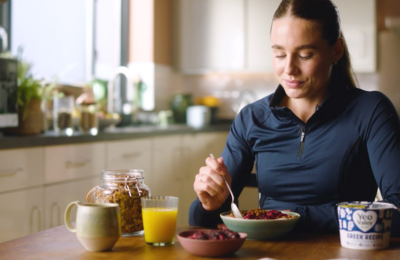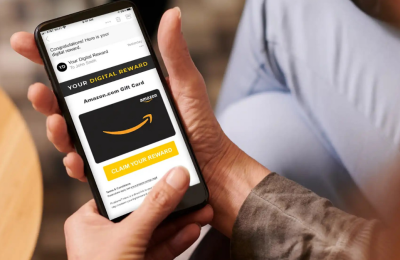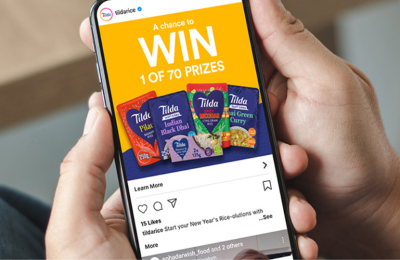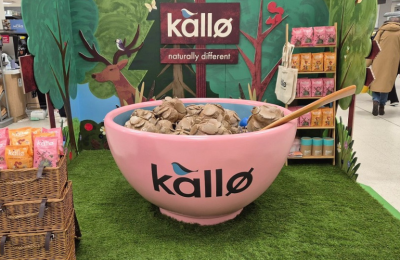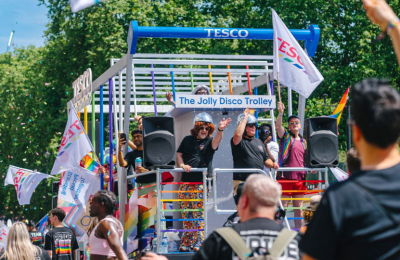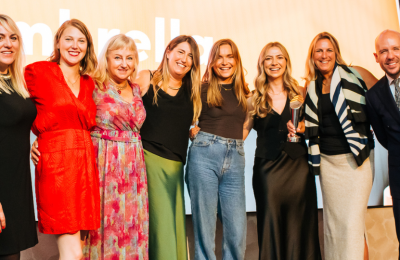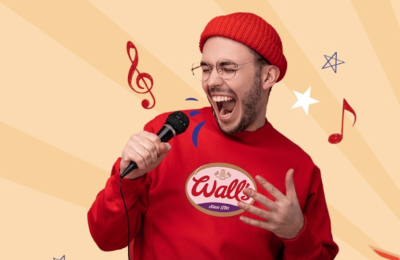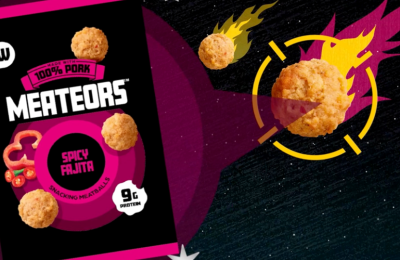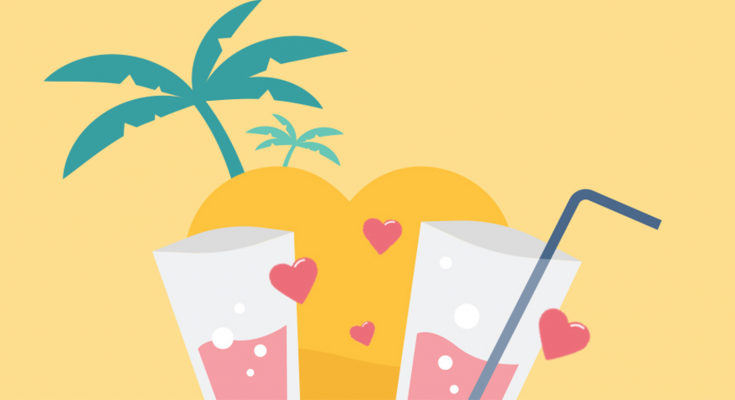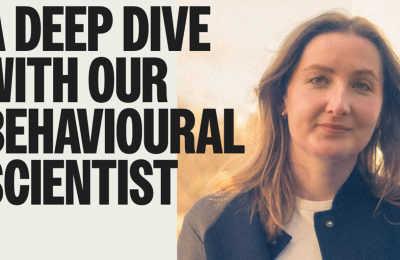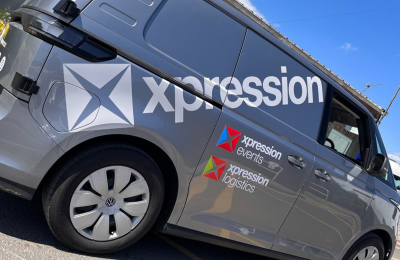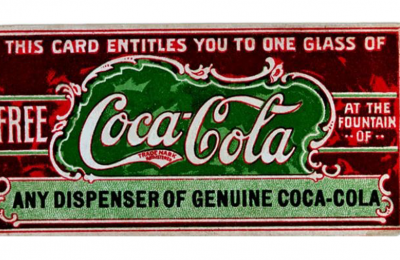Brass agencies Content, PR and Media teams come together to share their thoughts on Love Island and what marketers can learn from it.
Whether you love it or hate it (and TBH we fall into both camps), there’s no getting away from Love Island every summer. Whether it’s the daily show, slogan tees in Primark or meme accounts that infiltrate every social platform for 2 months; the show is one of ITV’s biggest success. And, unsurprisingly brands want in on the action. So if Love Island sounds like a bit of you, we share our view on what marketers can learn from it.
Nikky (Senior Content Executive) explains why brands should think ‘that’s a bit of me(mes)’.
“Are you even a Love Island fan if you don’t spend the ad break sifting through memes on Twitter?
The hashtag #LoveIsland was used nearly 200,000 times on the UK 2019 launch date as viewers competed to win the internet with the perfect meme, and before the first ad break we already knew that “It is what it is” was the catchphrase of the series.
Each night, our feeds are filling up with memes about the islanders. But what does this mean for brands? Meme marketing works because memes are native to the language of social media, and because of the amount of noise the show makes, Love Island provides an opportunity to be reactive and relevant with sharable branded content. Just make sure it’s a good fit for the brand. Royal Mail did this brilliantly by creating the ‘Loyal Mail’ meme with 2018 star, Georgia, after she made the phrase ‘I’m loyal’ notorious”
Why are brands coupling up with Love Island? Jenny (PR Account Executive) tells all.
“With 5.8m people watching Love Island already this year, brands have huge PR opportunities available to them by getting into bed with the show.
However, caution should be taken with this type of partnership. With so many people watching the show, slip ups can quickly go viral and potentially damage a brand’s reputation via association. Whether directly involved in the programme or simply jumping on the back of the latest catchphrase, brands that embark on capitalising on popular culture events or TV shows should always have a plan in place just in case a PR blunder happens.
Anyone remember the Carphone Warehouse sponsorship of Big Brother that went sour during the controversy with Jade Goody, Jo O’Meara and Danielle Lloyd?”
Becky (Organic Search Content Manager) spills the tea on whether Love Island’s content marketing approach is her type on paper.
“We can take a lot of content marketing lessons from Love Island, however the main lesson is that they really understand their core audience, and have got to grips with their lifestyle choices and interests, even down to what they read online.
Love Island has become more than just a TV show. People can join in with conversations online, watch behind the scenes footage, download an app and even purchase items used in the Love Island villa. Take these insights and apply them when developing your new campaign. Think about how you can get the most out of it, just like Love Island have done. Review different formats, partnership opportunities and ways you can personalise your content.”
Tom (Senior Organic Search Manager and non-Love Island fan) tells us why ITV need to pie off their current search strategy.
“From a search perspective the way that ITV have utilised their news section on Love Island is almost as bizarre as the popularity of the show. Considering they have a huge advantage in terms of releasing news and “first looks” they almost never rank for their show’s own news stories. This is down to how poorly optimised their Love Island news section is and the fact they haven’t leveraged their newsworthy advantage to ensure people are linking to their news articles. They have likely neglected the news section due to the success that newspapers have had in terms of increasing viewing figures. Yet it can’t help but feel short-sighted, if they had built up rankings and traffic they could’ve leveraged this to launch the next painful reality show when people inevitably grow tired of Love Island.”
Fran (Social & Content Manager) gives us an insight into the power of coupling up.
“It’s no surprise that the contestants of Love Island go on to have successful stints as influencers, given 4.4 million people tuned into the opening three episodes alone. A large percentage of whom, we can (fairly) confidently say will have contributed to the thousands of overnight followers the contestants gained on social media.
The show itself is largely based on image, and as a result, brands such as Missguided and I Saw it First have snapped up the opportunity to be the show’s official partner, providing contestants with clothes that commonly sell out shortly after an episode has aired.
However with influencers increasingly losing trust amongst consumers, a Love Islander promoting your brand on Instagram may have been effective a few years ago, now it’s more crucial for brands to create meaningful experiences with their audience – especially as we’re seeing industry reports saying over half of all their followers are fake! Less promo codes and more personality, please.”
Caroline (Media Group Account Director) is asking whether Love Island advertising could be a bit of you?
“With viewing up 16% (+0.8m) year on year and total viewers reaching 5.8m this year already Love Island continues to be commercial televisions biggest ratings puller for viewers aged 16 – 34. With an average of 51% of viewers falling into this category. It’s no surprise that when it comes to influencing this audience group, Love Island becomes a solid contender for media investment. However, whilst this age bracket is not surprisingly the highest, what is interesting is the audience breakdown overall and the volume of viewers the show attracts across the board:
| % Audience Breakdown | |
| Target | Profile Avg % |
| A4-15 | 8% |
| 16-34 Adults | 51% |
| 35-44 Adults | 14% |
| 45-54 Adults | 16% |
| 55-64 Adults | 7% |
| 65+ Adults | 4% |
The opportunity to reach your audience is vast, and with opportunities in both linear and nonlinear, Love Island could be a great addition to your media strategy, generating both brand and commercial success.”
Love Island might not be your cup of tea, but there’s no denying that we can learn a lot from it – good and bad. It’s caught the nation’s attention and created a buzz, something most brands would fall head over heels for.


